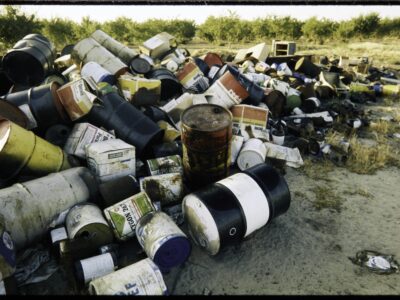Paper or plastic, tax or not? Prop 26 challenge to LA County’s plastic bag ban
 Wonder how broadly California’s Proposition 26 will be held to sweep? A case filed this week is likely to be an early indicator.
Wonder how broadly California’s Proposition 26 will be held to sweep? A case filed this week is likely to be an early indicator.
Many municipalities have recently placed limits on plastic bags. Last year, LA County went further, banning certain stores from giving out single-use plastic bags or non-recyclable paper bags at checkout, and requiring that stores charge customers 10 cents for recyclable paper bags. (LA Times story on the ban here , ordinance here.) The law was enacted by the County Board of Supervisors in mid-November 2010 and its first phase went into effect earlier this year.
The LA County ordinance has now been challenged in state court for violating Proposition 26, the initiative approved by California voters that expands the definition of a “tax” under State law and thereby expands the types of measures which must be approved directly by 2/3 of local voters. (See here for a pre-election description and analysis of Prop. 26 I wrote with fellow bloggers Sean Hecht and Rhead Enion.) LA’s plastic bag ordinance was not approved directly by voters at all and would be unlawful if held to be a tax.
I’ve seen media references to the new challenge, not the complaint itself*, but the plaintiffs’ side seems relatively straightforward: LA’s law requires consumers to be charged 10 cents for something that, absent the new regulation, would have been free. They’ll argue it therefore meets Proposition 26’s sweeping new definition of a tax, which includes “any levy, charge, or exaction of any kind imposed by a local government.” The case was filed by the largest plastic bag manufacturer in the country (you can read its press release on filing here).
A wrinkle in the case is that under the LA County ordinance, government never collects the 10 cents – instead, the revenue is kept by the retailer. LA County will argue that the money simply helps retailers recoup their costs for the more-expensive recycled paper bags, and that the hallmark of a tax is that it is collected by government. So one question becomes: Can a charge required by government, but not collected by government, be a tax under Proposition 26?
Another question is whether this charge falls under one of Proposition 26’s exceptions to a tax, which include an exception for charges imposed in exchange for products provided to the payor — though such charges may not exceed the reasonable cost to the local government of providing the product, which is a limit that cuts both ways in this case. With all of this, we’ll begin to see how willing courts are to begin narrowing Prop 26’s broad definition of a tax.
Hat tip to Californians Against Waste, which is following the case closely (see here for their release).
*UPDATE: Here is a copy of the complaint.







Reader Comments